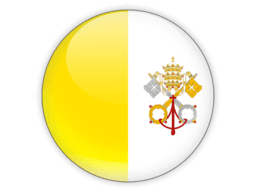
Vatican City, officially known as the Vatican City State, is an independent city-state enclaved within Rome, Italy. It is the smallest independent state in the world, with a total area of 44 hectares (110 acres) and a population of approximately 800 people, most of whom are Catholic clergy.
The Vatican City is the spiritual and administrative center of the Roman Catholic Church and is the residence of the Pope, who is also the head of state. The city-state is surrounded by a wall, and it is home to some of the world's most famous landmarks, such as St. Peter's Basilica, the Sistine Chapel, and the Vatican Museums.
The Vatican is governed as an absolute monarchy with the Pope as its head of state. The Pope is elected by the College of Cardinals and serves as both the leader of the Catholic Church and the head of state of the Vatican City. The Vatican has its own legal system, financial system, and media outlets, including the Vatican Radio and Vatican Television Center.
Despite its small size, the Vatican has a rich cultural heritage, with numerous museums, libraries, and archives housing important collections of art, artifacts, and documents. The Vatican Library, one of the oldest and most important libraries in the world, contains over 1.1 million volumes, including some of the oldest known manuscripts.
The economy of the Vatican City is heavily dependent on tourism and the sale of souvenirs and postage stamps. The Vatican also receives donations from Catholic faithful worldwide, and its financial operations are overseen by the Vatican Bank, which has been the subject of controversy and scandal in the past.
The Vatican City is recognized as a UNESCO World Heritage Site and attracts millions of visitors each year who come to see the treasures of the Catholic Church and to witness the unique culture and history of this sovereign city-state.
Mark Vatican as Visited
Add Vatican to your personal travel map and track your journey around the world. Share your adventures and see your progress grow!